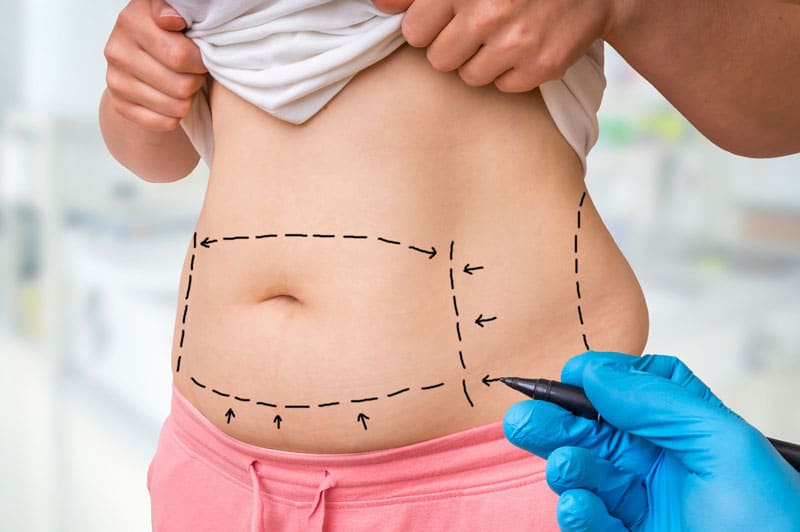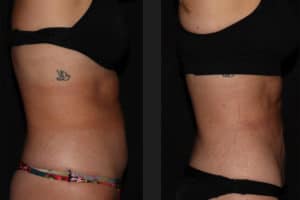Liposuction (sometimes called liposculpture) is a procedure that can help sculpt the body by removing unwanted fat from specific areas, including the abdomen, hips, buttocks, thighs, knees, upper arms, chin, cheeks, and neck. During the past decade, liposuction, which is also known as “lipoplasty” or “suction lipectomy,” has benefited from several new refinements. Although no type of liposuction is a substitute for dieting and exercise, liposuction can remove stubborn areas of fat that do not respond to traditional weight-loss methods.
Is this procedure right for you?
Liposuction is intended to remove pockets of excess fat in certain areas from those who are of normal weight with firm, elastic skin. Older patients with reduced elasticity in their skin may have less success with this procedure. You may not be a good candidate for the surgery if you have significant heart or lung disease, diabetes, or poor circulation, or if you have recently had surgery, as these conditions can carry additional risks. Patients should be mentally and physically healthy and have realistic expectations for the outcome of the surgery.
Will I have any scarring?
Once healed, the incisions will be nearly invisible, as they are generally placed in hidden areas or skin folds.
Is it possible to have another procedure done at the same time?
Often liposuction is done to harvest fat for use in autologous fat transfer to shape the face or other body parts, such as the buttocks and calfs.
What risks are involved?
Rare complications include infection, slow healing, fat clots or blood clots (which can be dangerous or deadly if they migrate to the lungs), friction burns, skin or nerve damage, perforation injury to internal organs, and drug reactions. These complications are more likely if several areas are treated at once or there is a large amount of fat and fluid removed, resulting in longer operating times.
Where will the surgery take place?
Liposuction can be done in a hospital but is generally performed in our office or an outpatient surgery center. For smaller volumes, outpatient liposuction is generally more convenient and cost-effective, but a hospital stay may be required for larger volumes.
What should I expect from the post-surgery recovery period?
Following liposuction, you will have some swelling and drainage from the incisions. You will need to wear an elastic garment to help your skin adapt to your new shape and to minimize swelling. Post-surgical discomfort can be treated with pain medication
While you should stay mobile to prevent the formation of blood clots and keep swelling down, you should refrain from strenuous activity for about six weeks. Most patients can return to work or normal activities within a few days of surgery and are feeling better after a week or two. Swelling and bruising from the procedure lasts about three weeks, though in some cases swelling may take up to six months to completely disappear. Within a week, the stitches will dissolve on their own or be removed.





